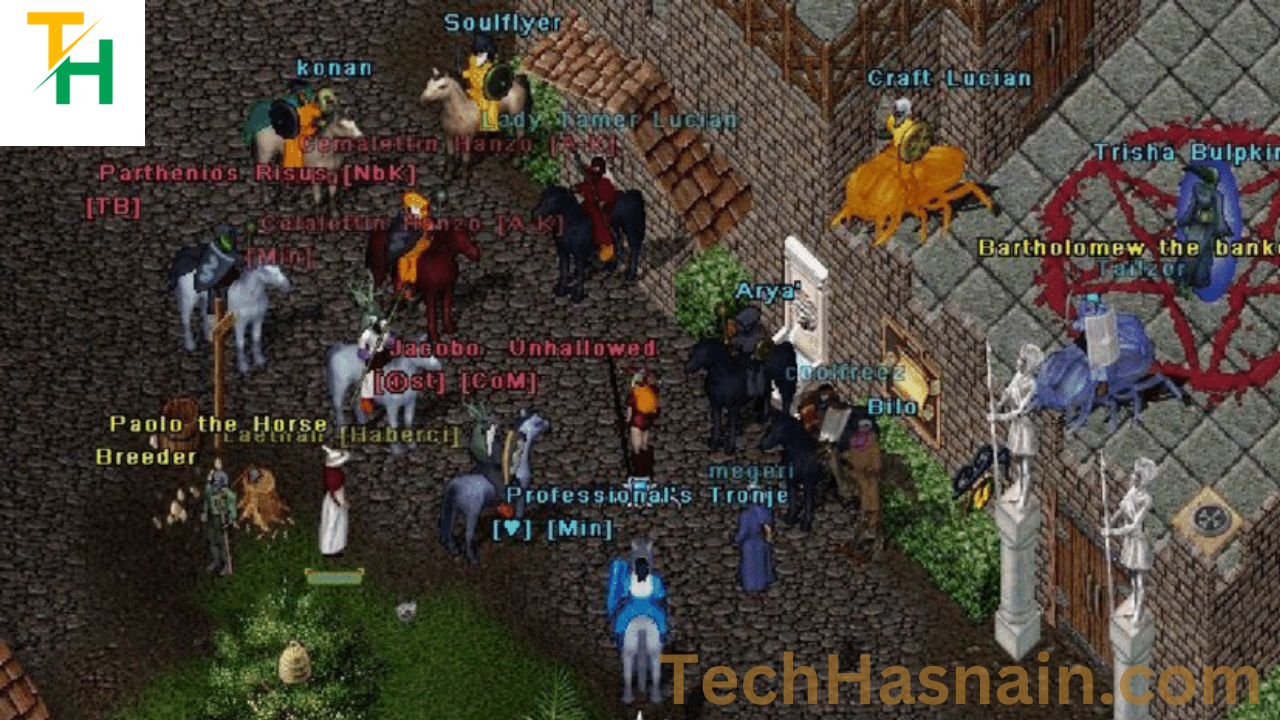In the vast and diverse world of gaming, there are numerous genres and subgenres that cater to a wide range of tastes and preferences. One such genre that has captured the imaginations of countless gamers worldwide is Fantasy Role-Playing, often abbreviated as FRP. In this comprehensive exploration, we will delve into what FRP in gaming truly entails, its rich history, the key elements that define it, and why it continues to be a beloved genre amongst player of all age.
Defining Fantasy Role-Playing (FRP)
At its core, Fantasy Role-Playing (FRP) is a genre of gaming that emphasizes storytelling, immersion, and player agency within a fantastical and often magical setting. In FRP games, players assume the roles of fictional characters and embark on adventures, quests, and journeys in a fictional world. These characters, known as player characters (PCs), are brought to life by the players themselves, who make decisions on their behalf, guide their actions, and shape their destinies.
FRP games encompass a broad spectrum of gaming experiences, ranging from tabletop role-playing games (RPGs) played with friends around a table to massive multiplayer online role-playing games (MMORPGs) where players interact in vast virtual worlds. The common thread that ties these diverse experiences together is the focus on storytelling, character development, and the exploration of imaginative realms.
The Rich History of FRP
The roots of Fantasy Role-Playing can be traced back to the early 1970s, with the creation of tabletop RPGs like Dungeons & Dragons (D&D). Dungeons & Dragons, developed by Gary Gygax and Dave Arneson, introduced players to a fantasy world filled with magic, mythical creatures, and epic adventures. It set the foundation for many of the conventions and tropes associated with the FRP genre.
Tabletop RPGs like D&D allowed players to assume the roles of characters such as wizards, warriors, elves, and dwarves, and to engage in collaborative storytelling where their choices had real consequences. The success of D&D led to the creation of countless other tabletop RPGs, each with its unique settings and rulesets.
In the 1980s and 1990s, the advent of computer technology gave rise to video game adaptations of tabletop RPGs. Games like "Baldur's Gate," "Final Fantasy," and "The Elder Scrolls" series allowed players to immerse themselves in digital worlds and embark on epic quests with the convenience of a computer or console.
The late 1990s and early 2000s marked the emergence of MMORPGs like "World of Warcraft," "EverQuest," and "Ultima Online." These online worlds brought thousands of players together in persistent virtual realms, creating a sense of community and shared adventures on an unprecedented scale.
Key Elements of FRP in Gaming
Fantasy Role-Playing in gaming is characterized by several key elements that contribute to its unique appeal:
Character Creation
FRP games often begin with character creation, where players craft their own unique avatars. This process involves selecting races, classes, attributes, and abilities that define the character's identity and capabilities.
Storytelling and Immersion
A central element of FRP is storytelling. Games in this genre prioritize rich, immersive narratives that draw players into the game world. Players make choices and engage in dialogues that shape the story's progression.
Exploration
FRP games encourage exploration of the game world, which is often vast and filled with secrets, treasures, and hidden dangers. Players can uncover new locations, encounter NPCs (non-player characters), and stumble upon unexpected events.
Character Development
As players progress through the game, their characters gain experience points and level up, unlocking new abilities and improving existing ones. Character development is a fundamental aspect of FRP gaming.
Quests and Objectives
FRP games feature quests, missions, and objectives that provide structure to the gameplay. Completing quests often leads to rewards, advancement, and further narrative development.
Social Interaction
In MMORPGs and some tabletop RPGs, social interaction plays a crucial role. Players can form parties, guilds, and alliances, fostering a sense of community and cooperation.
Combat and Challenges
FRP games typically include combat encounters and challenges, ranging from battles against monsters and foes to solving puzzles and overcoming obstacles. Combat mechanics can vary widely, from turn-based systems to real-time action.
Customization
Many FRP games offer extensive customization options, allowing players to personalize their characters' appearance, gear, and abilities. This customization adds a layer of individuality and creativity to the experience.
Why FRP Remains Popular
Despite the ever-evolving landscape of gaming, Fantasy Role-Playing continues to be a beloved genre with enduring popularity. Here are some reasons why FRP remains a staple in the gaming world:
Immersion and Escapism
FRP games offer players the chance to escape into imaginative worlds where they can become heroes, adventurers, or even villains. The immersive storytelling and rich environments provide a compelling form of escapism.
Endless Variety
The diversity of FRP settings and systems ensures that there is something for everyone. Whether you prefer high-fantasy realms, post-apocalyptic wastelands, or futuristic dystopias, there is an FRP game that caters to your tastes.
Social Interaction
MMORPGs and tabletop RPGs provide opportunities for social interaction and collaboration. Many players value the friendships and communities they form within these games.
Character Progression
The sense of progression and growth that comes with leveling up and improving a character's abilities is deeply satisfying. It keeps players engaged and invested in their virtual alter egos.
Creativity and Freedom
FRP games encourage creativity and allow players to make choices that impact the game world. This freedom to shape the narrative and their characters' destinies is a powerful draw.
Timelessness
Classic tabletop RPGs like D&D have stood the test of time, and their enduring popularity has inspired new generations of gamers. The appeal of FRP transcends age and continues to capture the imagination.
Evolution and Adaptation
The FRP genre has evolved to embrace new technologies and platforms. From traditional tabletop sessions to virtual reality experiences, FRP has adapted to stay relevant and engaging.
Notable FRP Games and Series
Throughout the history of gaming, several notable FRP games and series have left an indelible mark on the genre. These titles have influenced the way FRP games are developed and enjoyed:
Dungeons & Dragons
The iconic tabletop RPG that laid the foundation for the genre and continues to inspire countless games, novels, and adaptations.
The Elder Scrolls Series: Known for its sprawling open worlds and deep lore, this series offers players the freedom to explore and shape their characters in a high-fantasy setting.
Final Fantasy Series
A long-running series of JRPGs (Japanese Role-Playing Games) known for its rich storytelling, memorable characters, and epic adventures.
World of Warcraft
The MMORPG that set new standards for online gaming with its vast, persistent world and a dedicated player community.
Baldur's Gate
A classic series of isometric CRPGs (Computer Role-Playing Games) set in the Dungeons & Dragons universe, celebrated for its storytelling and memorable characters.
The Witcher Series
Known for its morally complex narrative, this series allows players to step into the shoes of Geralt of Rivia, a monster hunter in a dark fantasy world.
Mass Effect Series
A science fiction RPG known for its branching narratives and player choices that influence the story.
Conclusion
Fantasy Role-Playing (FRP) in gaming is a genre that has captivated the hearts and minds of gamers for decades. It offers a unique blend of storytelling, immersion, character development, and exploration in fantastical worlds of limitless imagination. Whether you're rolling dice with friends around a tabletop or embarking on epic quests in massive virtual realms, FRP games continue to provide memorable and enduring gaming experiences that transport players to realms of magic, wonder, and adventure. As technology advances and game development evolves, the future of FRP gaming promises even more exciting and immersive adventures for players to enjoy.





Post a Comment
0 Comments